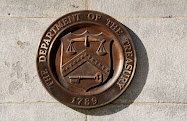Before the end of the 60-day Lebanon-Israel ceasefire
agreement, and a week after Judge Nawaf Salam was assigned to form a new
cabinet, meetings with parliamentary blocs are intensifying to dispel any
obstacles, one of which is the Lebanese Forces’ insistence on monopolizing the
ministries of foreign affairs and energy.
Reportedly, Samir Geagea, head of the Lebanese Forces (4
ministries), has also sent MP Melhem Riachi to meet Prime Minister-designate
Nawaf Salam and know the details of the cabinet lineup.
Salam informed Riachi that he was determined to strengthen
his relationship with Nabih Berri, Speaker of the Parliament, based on a
promising future and putting national interests above anything else.
For his part, President Joseph Aoun, despite announcing that
he is not seeking any ministry for his team, insists on granting him the power
to place a “veto” on the names nominated for the sovereign ministries of
foreign affairs, defense and interior.
According to sources, the prime minister-designate is in
talks with figures who are supposed to have chances to hold ministerial
positions; they say he is seeking to form a “technocratic-political” cabinet.
Salam
insists on not excluding any political stakeholders, so he intends to appoint
representatives of these factions to ministerial portfolios, provided that
they: 1) do not hold senior positions in these factions and 2) sign a pledge
not to run in the upcoming parliamentary elections.
Given that the Interior Ministry is the Sunni share, there
is a deep disagreement between Sunni figures in this regard, especially as the
minister will supervise the upcoming parliamentary elections, scheduled for May
2026.
Although
Salam did not make any promise to appoint any Shiite figure outside the circle
of the Hezbollah-Amal duo, he did not contact any of the so-called “Shiite
opposition”, who saw an opportunity to find a foothold in the government.
However, following the two meetings that brought Salam together with the duo,
their US-prompted dream has faded.
The prime minister-designate further met with Mohammad Raad,
head of the Loyalty to the Resistance bloc; Hussein Khalil, the political
assistant to the Hezbollah Secretary-General, and MP Ali Hassan Khalil, a
representative of the Amal Movement.
During the two meetings, Salam spoke at length about the
Lebanese political system since independence from the French occupation in the
early fifties, until the Taif Agreement, which ended the 1975-1990 civil war,
stressing his view not to exclude any political component.
The duo expressed their objection to the violations that
accompanied his nomination, but showed their willingness to overcome that in
order to preserve Lebanon's interests during this critical period.
In addition to the Ministry of Finance, the duo demanded a
significant service ministry, such as the Ministry of Public Works or the
Ministry of Health, expressing their complete readiness to cooperate with
Salam.
Meanwhile, it is not clear whether the duo will be the ones
to propose the names of the five ministers for the prime minister-designate to
choose from or vice versa, knowing that the duo’s priority is the mechanism for
governance and addressing urgent issues in the next phase.
Since the signing of the Taif Agreement, successive
governments have made it a priority for the ministerial statement to clearly
state the right of the Lebanese to resist and liberate the occupied
territories. Therefore, one of the duo’s priorities is for the current
ministerial statement to stipulate the righteousness of the resistance.
In light of the anti-Hezbollah team’s biased interpretations
of UN Resolution 1701, the duo is keen for the ministerial statement to express
the government’s commitment that President Joseph Aoun would conduct a
comprehensive national dialogue regarding the Resistance movement’s weapons
along the general national defense strategy.






